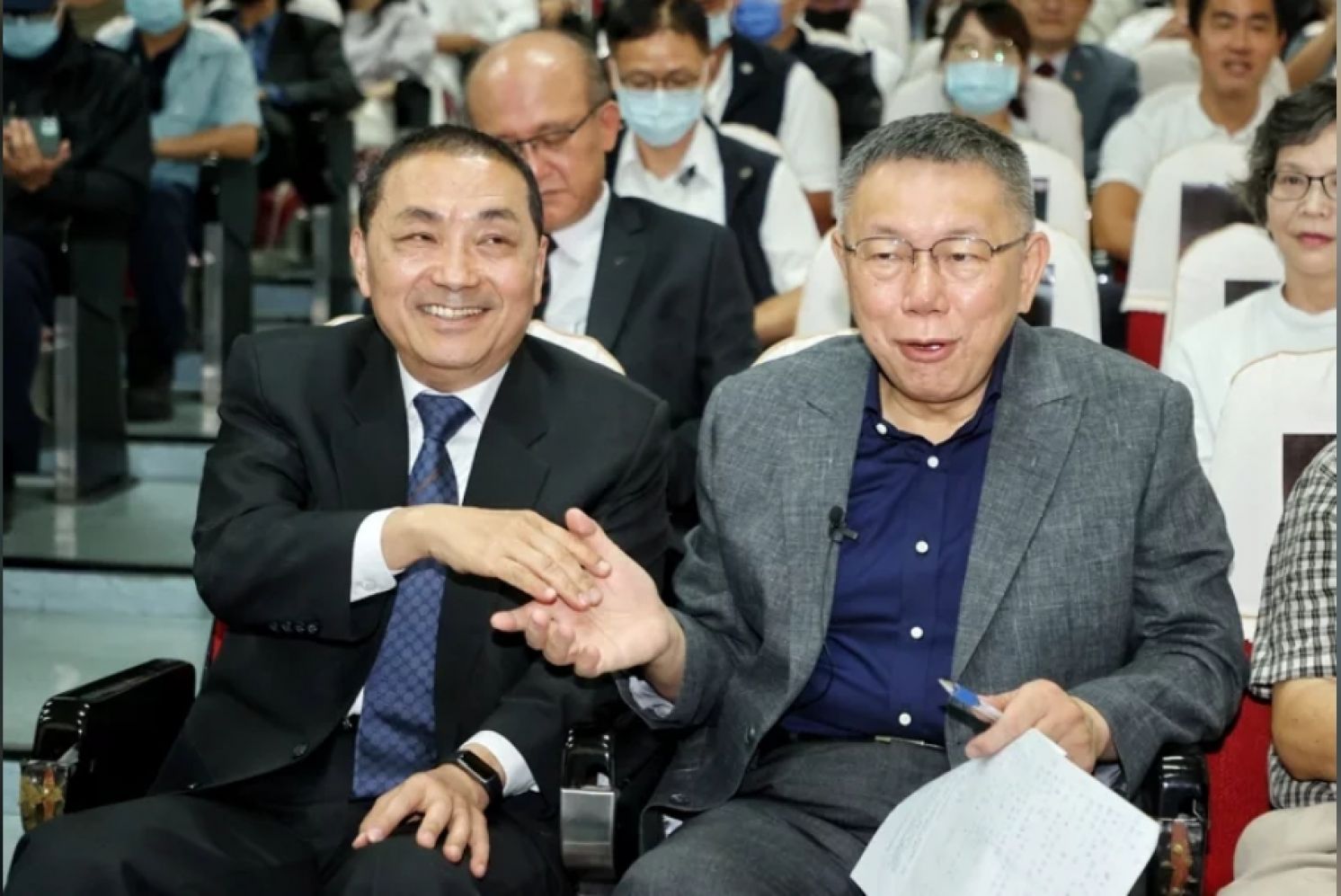
This Week in Taiwan 1001-1007
October 2: The United Daily News published an annual survey on cross-strait relations. In Taiwan, the public's sense of hostility in cross-strait relations has eased slightly. Although cross-strait political, military, and diplomatic interactions remain tense, the public believes that the possibility of war is low. Should military conflict occur in the Taiwan Strait, 48 percent believe that the United States will send troops to assist in Taiwan's defense, but 40 percent think otherwise. The public believes that "Taiwan independence" is the biggest variable in cross-strait relations. Some 85 percent believe that cross-strait communication is necessary; 57 percent advocate "maintaining the status quo forever," a new high. Regarding President Tsai Ing-wen's handling of cross-strait relations, 38 percent are satisfied, while 49 percent are dissatisfied.
October 2: Former President Ma Ying-jeou announced his refusal to attend this year's National Day celebration. According to Ma, starting in 2021, the Tsai administration has turned the National Day of the Republic of China into "Taiwan National Day," changing the name of the country to "Taiwan," which is an out-and-out course of pursuing "Taiwan independence." Ma stated that his appeals have been ignored by the Tsai administration. If he were to attend the National Day ceremony again, it would be equivalent to endorsing the detour and sneaky course of "Taiwan independence" pursued by the administration.
October 3: Taiwan's semiconductor industry faces pressure from a decline in global market share despite its current dominance. According to the latest report by the International Data Corporation (IDC), under the interference of geo-political factors, new developments have emerged in the regional semiconductor industry chain. It is expected that by 2027, Taiwan's global wafer foundry and packaging and testing market share will both decline. The wafer foundry market share will drop from 46 percent this year to 43 percent, and the packaging and testing market may fall below the 50 percent mark.
October 3: Admiral Huang Shu-kuang, convener of the domestic submarine manufacturing program, stated recently that some legislators obstructed the implementation of the program and leaked classified information. Kuo Hsi-chi, a former naval adviser, pointed directly at Legislator Ma Wen-chun as the person involved. Legislator Ma criticized Kuo for attempting to take over the submarine bidding project with a shell company, and both parties sued one another. The Taiwan High Prosecutors Office separately investigated whether the case should include charges involving leaking national defense secrets and leaking secrets by public officials.
October 4: Bloomberg named four Taiwanese technology companies for building infrastructure for Huawei's Shenzhen chip plant, including L&K Engineering Company, TOPCO Scientific Company, United Integrated Services Company, and Cica-Huntek Chemical Technology, all suppliers of the Taiwan Semiconductor Manufacturing Company (TSMC), attracting scrutiny. Minister of Economic Affairs Wang Mei-hua originally stated that the Taiwanese companies handled low-level engineering work but later changed her account and invited the four companies to explain. They will be fined if their work does not match the original investment projects approved.
October 5: In an interview with Nikkei Asia, Secretary-General Wellington Koo of the National Security Council stated that a list defining core technologies covering industries such as semiconductors, agriculture, aviation, and information technology will be released by the end of this year to regulate investment, manpower, operations, and technology transfer and ensure that China does not obtain these technologies.
October 5: Ko Wen-je, presidential candidate of the Taiwan People's Party (TPP), proposed that the winner in a pre-election poll contest between opposition candidates should be the presidential candidate, while the loser can recommend the running mate. He also did not deny the possibility of a Kuomintang (KMT) presidential candidate and TPP running mate. Ko recommended five organizations as the basis for further KMT-TPP cooperation. KMT presidential candidate Hou Yu-ih responded that polling is not the only option, for it may turn into a zero-sum game. A standard operating procedure should be formulated by the two parties.
October 5: After the controversy over the safety of imported eggs, it was discovered that the origin of imported American pork was labeled as "Canada" and shipped to retail vendors. Local governments have strengthened inspections and issued fines for changes in labels and origins. Prosecutors have also launched separate investigations into the mislabeling products.